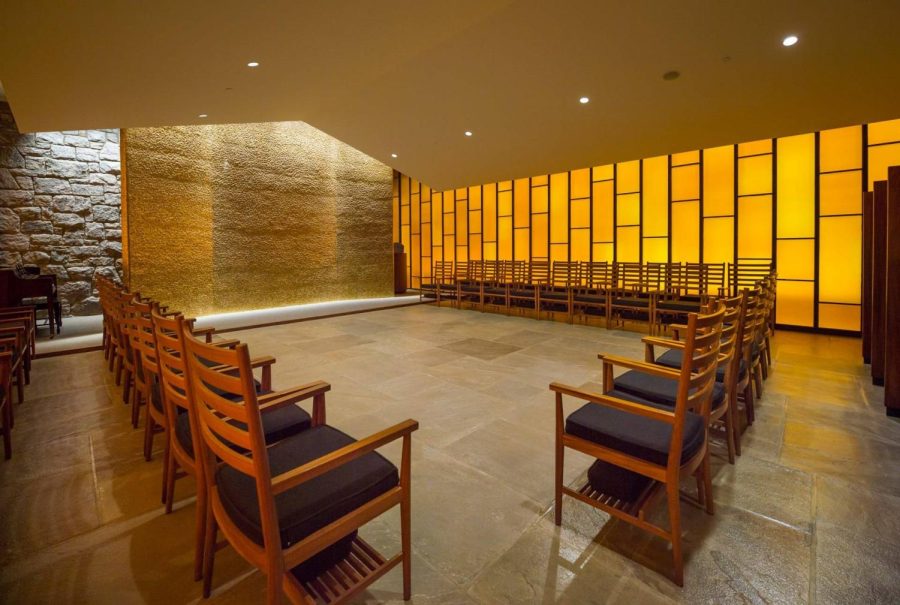Morning Reflections Series Fosters Community, Features President Casey as Guest Speaker
On Feb. 1 the Office of the Chaplains commenced its weekly Morning Reflections gathering, which is a series implemented to encourage self-reflection and the intermingling of various religious and secular beliefs.
Morning Reflections is a 15-minute event held in the chapel, during which a guest speaker prepares a speech, reading or prayer of their choice. The Office of the Chaplains selected President Brian W. Casey as the first guest speaker. Casey chose an article written by a former Yale University student about the community one finds in college. In the following weeks, professors, faith leaders and presidents of several on-campus organizations will be guest speakers as well.
“Guest speakers for each semester are selected from a list generated in my office with suggestions from people around campus,” University Chaplain Rabbi Barry Baron said. “Anyone is eligible … [and] speakers are free to choose their topics, mode of presentation, room seating arrangement and music that they would like played before and/or after they speak.”
Senior Corinna Yee has been involved with the Colgate Jewish Union since her first year and will be the guest speaker for the Feb. 8 Morning Reflections event. Yee values the fact that speakers can present a topic of their choosing, as she believes it introduces her to the diversity of the student body and allows her to learn from peers.
“I really like that [speakers can talk about whatever they please], because listeners can learn about the speakers’ values and what’s important to them,” Yee said. “I not only get inspiration from the material itself being shared, but also why the speakers chose to share it with the audience.”
The Morning Reflections series began as a response to suggestions from Dean Paul McLoughlin and President Casey, who both experienced similar programs during their time at Harvard University. Baron confirmed that regardless of a student’s religious affiliation—or lack thereof—everyone at Colgate can benefit from attending Morning Reflections.
“Both for our office and for the broader community, we value this series for the variety of voices and people it brings into our space,” Baron said. “Some participants have religious commitments, while others do not. Regardless, everyone who comes takes something of value away from the experience.”
Morning Reflection offers students the opportunity to interact with peers outside of an academic environment, according to Yee.
“Morning Reflections […] is a good way to remind ourselves that everyone on this campus is a person with unique stories that we can learn from,” Yee said. “Even if the speaker isn’t explicitly talking about a religious text or idea, taking 15 minutes in the morning to just listen and reflect is a spiritual experience that brings us closer to ourselves as well as the people around us.”
University Studies Lecturer Ferdinand von Muench has been working with the Chaplains’ Office for several years, and he often takes his students to the chapel to interact with religious life at Colgate. Von Muench agrees that events held by the Office of the Chaplains can enrich students’ experiences both within and outside of the classroom.
“[Events held by the Office of the Chaplains ] are great for various reasons, and one is that it is not under the gun of grading or quizzes. … It is often intellectual, but also emotionally and personally engaging,” von Muench said. “There is not the pressure that you have in a classroom setting, so people who go to these events get something out of it that adds to class material.”
Although the early start time can act as a deterrent for student attendance, the Office of the Chaplains and guest speakers believe that Morning Reflections establishes a crucial sense of community that is sometimes lost during the winter months.
“Especially in the winter, when [Colgate] can sometimes feel isolating, I think students crave an opportunity to have experiences like the ones at Morning Reflections and other Chaplains’ Office events,” Yee said. “It introduces students to religious figures and communities on campus, and reassures them that it’s not as intimidating or strict as one would think.”







